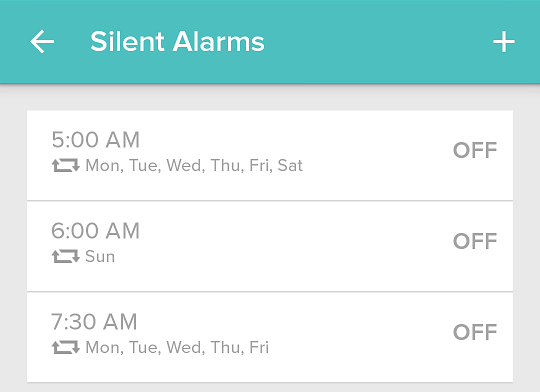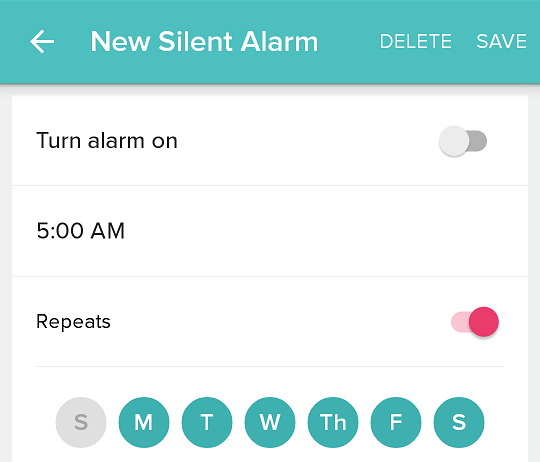- Joined
- Jun 26, 2012
- Messages
- 157
- Reaction score
- 12
I'm looking for the best smartwatch or fitness tracker for MS3 and residency. I have tested a few different options and am interested to hear what others are using. This is what I want the device to do, in order of importance:
1. Wake me up silently so my bed partner doesn't grow to hate me during surgery and other early-starting rotations.
2. Send alerts from apps of my choosing so I can be aware without getting caught with a phone out during rounds or with patients.
3. Be waterproof so it doesn't become yet another fomite.
4. Estimate my activity level to help keep me from getting medschool-induced diabetes.
5. Track heart rate so I can quantify my nervousness while presenting at rounds or getting yelled at for performing unnecessary DREs.
So far I've tested:
Garmin Vivosmart HR
Price: $130
Pros:
1. Comfortable, light.
2. Not an eyesore.
3. Easy setup, app intuitive and easy to use.
4. Good battery life compared to other devices I tested. Wore it 4 days without charging.
5. Waterproof, can shower with it.
Cons:
1. Vibrating alarm too gentle and stops after a minute. Slept through it on 5th day of use (I am a light sleeper).
2. Can only set one alarm, choosing between Weekdays or Every Day.
3. Few customization options.
4. Heart rate monitor inaccurate. At times falsely reported my resting HR as <50 or >100.
Samsung Gear Fit2
Price: $180
Pros:
1. Nice looking, bright AMOLED display.
2. Attractive interface with different watchfaces.
3. Comfortable, light.
4. Heart rate monitor seemed more accurate and had a better GUI for workouts than Vivosmart HR.
5. Built in GPS.
Cons:
(Some of these may not apply when paired with a Galaxy phone/tablet. I have an HTC One M8.)
1. Not truly compatible with non-Samsung phones/tablets.
2. Alarm feature completely nonfunctional.
3. Setup complex and frustrating.
4. Samsung tech support shockingly bad. They weren't able to figure out whether the device is supposed to have an alarm or pair with non-Samsung phones, much less help me troubleshoot.
5. Poor battery life, needed to charge in less than two days.
6. Water resistant but not waterproof, have to remove to shower.
7. Proprietary charger is bulky compared to Garmin or Pebble.
8. Built in GPS drains battery rapidly when in use.
Pebble Time
I am currently testing this and will update later.
Price: $100
Pros:
1. Lots of apps, tons of options for customization.
2. Relatively inexpensive.
3. Not uncomfortable.
4. E-ink type screen easy to read in bright sunlight.
5. Easy setup.
6. "Water resistant to 30 meters," can wear in shower.
Cons:
1. Blocky look with gameboy-looking screen.
2. No touch screen, operate using physical buttons.
3. No heart rate monitor.
Considered but haven't tested:
Apple Watch - High price, poor battery life, iOS only.
Android Wear - Can't justify the pricetag for the ones that might fit my needs.
Basis Peak - Limited alarms and notifications, expensive for its age.
Microsoft Band 2 - Limited alarms, known durability issues with non-replaceable wrist strap, awkward landscape interface.
Fitbit devices - Couldn't find one with all the features I needed. Some were uncomfortable and couldn't imagine myself wearing them to sleep.
Jawbone UP2/3/4 - No screen, limited alarms.
Overall my impression is this is an immature technology with no great options. The Pebble may be the best compromise for med students/physicians, who can take our own pulse but can't risk oversleeping. What are your thoughts?
1. Wake me up silently so my bed partner doesn't grow to hate me during surgery and other early-starting rotations.
2. Send alerts from apps of my choosing so I can be aware without getting caught with a phone out during rounds or with patients.
3. Be waterproof so it doesn't become yet another fomite.
4. Estimate my activity level to help keep me from getting medschool-induced diabetes.
5. Track heart rate so I can quantify my nervousness while presenting at rounds or getting yelled at for performing unnecessary DREs.
So far I've tested:
Garmin Vivosmart HR
Price: $130
Pros:
1. Comfortable, light.
2. Not an eyesore.
3. Easy setup, app intuitive and easy to use.
4. Good battery life compared to other devices I tested. Wore it 4 days without charging.
5. Waterproof, can shower with it.
Cons:
1. Vibrating alarm too gentle and stops after a minute. Slept through it on 5th day of use (I am a light sleeper).
2. Can only set one alarm, choosing between Weekdays or Every Day.
3. Few customization options.
4. Heart rate monitor inaccurate. At times falsely reported my resting HR as <50 or >100.
Samsung Gear Fit2
Price: $180
Pros:
1. Nice looking, bright AMOLED display.
2. Attractive interface with different watchfaces.
3. Comfortable, light.
4. Heart rate monitor seemed more accurate and had a better GUI for workouts than Vivosmart HR.
5. Built in GPS.
Cons:
(Some of these may not apply when paired with a Galaxy phone/tablet. I have an HTC One M8.)
1. Not truly compatible with non-Samsung phones/tablets.
2. Alarm feature completely nonfunctional.
3. Setup complex and frustrating.
4. Samsung tech support shockingly bad. They weren't able to figure out whether the device is supposed to have an alarm or pair with non-Samsung phones, much less help me troubleshoot.
5. Poor battery life, needed to charge in less than two days.
6. Water resistant but not waterproof, have to remove to shower.
7. Proprietary charger is bulky compared to Garmin or Pebble.
8. Built in GPS drains battery rapidly when in use.
Pebble Time
I am currently testing this and will update later.
Price: $100
Pros:
1. Lots of apps, tons of options for customization.
2. Relatively inexpensive.
3. Not uncomfortable.
4. E-ink type screen easy to read in bright sunlight.
5. Easy setup.
6. "Water resistant to 30 meters," can wear in shower.
Cons:
1. Blocky look with gameboy-looking screen.
2. No touch screen, operate using physical buttons.
3. No heart rate monitor.
Considered but haven't tested:
Apple Watch - High price, poor battery life, iOS only.
Android Wear - Can't justify the pricetag for the ones that might fit my needs.
Basis Peak - Limited alarms and notifications, expensive for its age.
Microsoft Band 2 - Limited alarms, known durability issues with non-replaceable wrist strap, awkward landscape interface.
Fitbit devices - Couldn't find one with all the features I needed. Some were uncomfortable and couldn't imagine myself wearing them to sleep.
Jawbone UP2/3/4 - No screen, limited alarms.
Overall my impression is this is an immature technology with no great options. The Pebble may be the best compromise for med students/physicians, who can take our own pulse but can't risk oversleeping. What are your thoughts?


